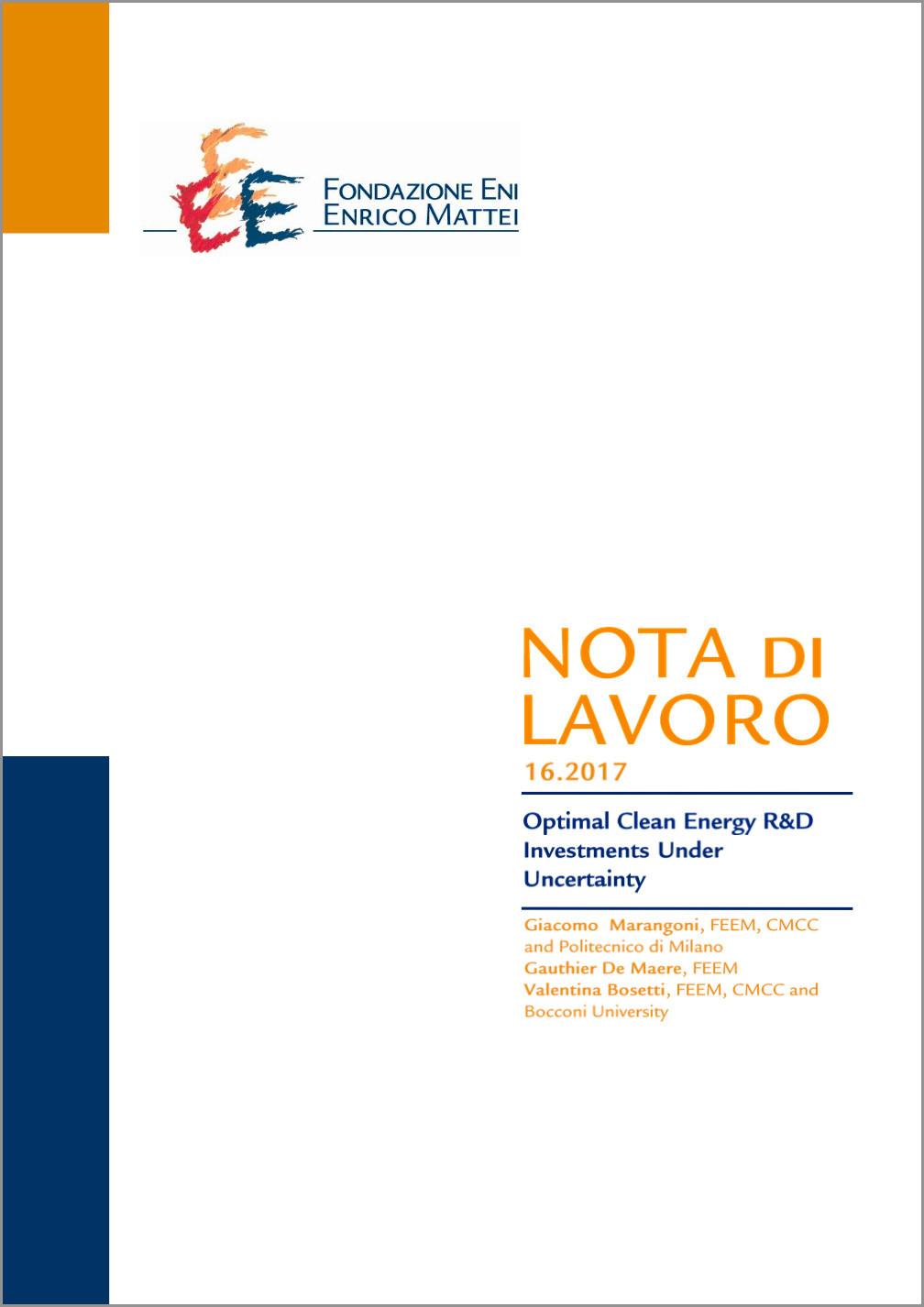Optimal Clean Energy R&D Investments Under Uncertainty

09.03.2017
O30, O33, Q40, Q41, Q50, Q55
Energy, Innovation, Technological Change, Uncertainty, Climate Policy
Mitigation, Innovation and Transformation Pathways
Massimo Tavoni
The availability of technology plays a major role in the feasibility and costs of climate policy. Nonetheless, technological change is highly uncertain and capital intensive, requiring risky efforts in research and development of clean energy technologies. In this paper, we introduce a two-track method that makes it possible to maintain the rich set of information produced by climate-economy models while introducing the dimension of uncertainty in innovation ef- forts, without succumbing to computation complexity. In particular, we solve the problem of an optimal R&D portfolio by employing Approximate Dynamic Programming, through multiple runs of an integrated assessment model (IAM) for the purpose of computing the value function, and expert elicitation data to quantify the relevant uncertainties. We exemplify the methodology with the problem of evaluating optimal near-term innovation investment portfolios in four key clean energy technologies (solar, biofuels, bioelectricity and personal electric vehicle batteries), taking into account the uncertainty surrounding the effectiveness of innovation to improve the performance of these technologies. We employ an IAM (WITCH) which has a fairly rich description of the energy technologies and experts’ beliefs on future costs for the above-mentioned technologies. Focusing on Europe and its short-term climate policy commitments, we find that batteries in personal transportation dominate the optimal public R&D portfolio. The resulting ranking across technologies is robust to changes in risk-aversion, R&D budget limitation and assump- tions on crowding out of other investments. These results suggest an important upscaling of R&D efforts compared to the recent past.
***
Suggested citation: Marangoni, G., G. De Maere, V. Bosetti, (2017), ‘Optimal Clean Energy R&D Investments Under Uncertainty’, Nota di Lavoro 16.2017, Milan, Italy: Fondazione Eni Enrico Mattei
